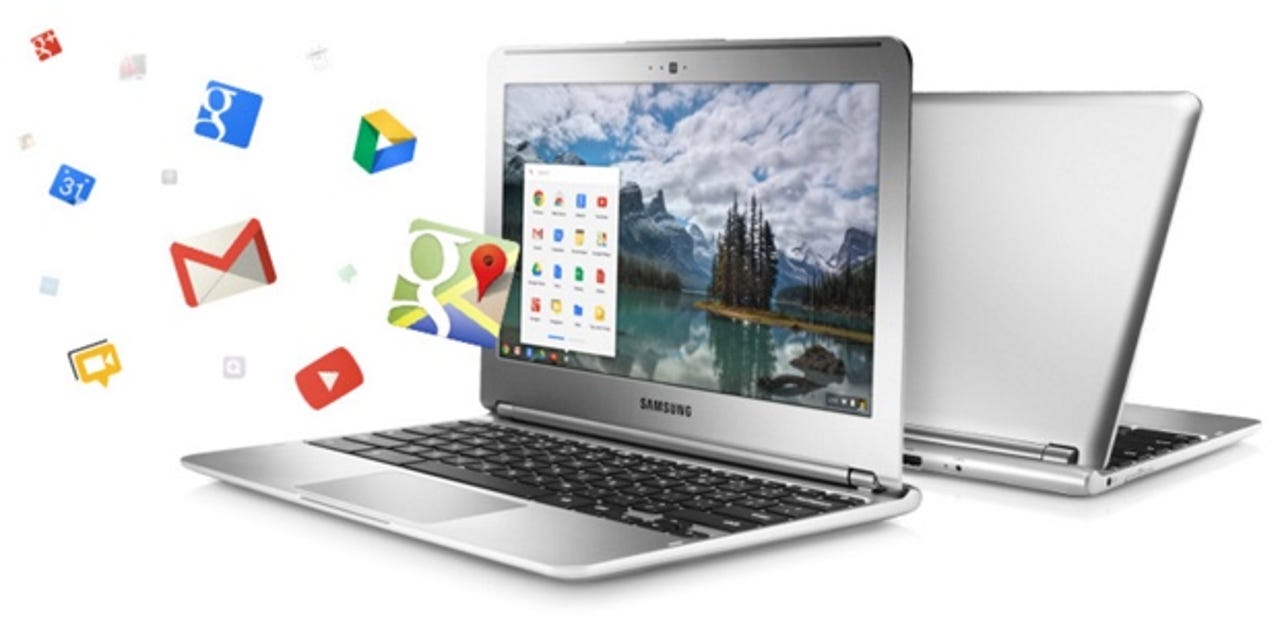Why your next laptop should be a Chromebook


Chromebooks can slid right into your workflow if your company uses Google Apps.
Most of us are wasting money on overpowered, overpriced laptops because we're sold on the idea that we need them. We don't. And there's a better-suited alternative - the Chromebook.
See also: The era of tech firms 'copying Apple' is coming to an end
find the perfect laptop: more resources
Over the years I've gone through a number of high-end laptops. Right now I'm typing this on a MacBook Pro with sixteen gigabytes of RAM, one terabyte of storage, an Intel Core i7 processor, and a high-pixel-density display. It's a great system, but I'm also very aware of the fact that it's a lot of power for what I do mostly, which is research and write.
Now, there are times when having that power comes in handy, I occasionally run Photoshop and other resource-demanding applications on it, but most of the time I'm only doing this because I can and there's usually a perfectly good desktop system not far away that I'm choosing not to use.
I'm increasingly using it because it's there, not because I need to.
If you're the sort of person who uses their laptop to run something like Photoshop or Lightroom or something similar on a regular basis, then you can probably stop reading right now. You know what you're doing and need the power that a full-blown laptop offers you. However, if you're the sort of person who uses their laptop for browsing the web, working with word processor documents or spreadsheets, consuming content and the like, then choosing to make the switch to a Chromebook is not only gong to save you money, but it's also going to make your life easier.
"How's that?" I hear you ask.
Best laptops for work and play (June 2016 edition)
Well, first off, backups are automatic, painless, and very reliable. And I'm not just talking about the data, but also all the settings. If your Chromebook is lost or stolen or breaks, you can buy a new one, log into it, and you've migrated to your new system.
Chromebooks are incredibly low maintenance. There's no laborious uninstalling or defragging or optimizing to do. You fire it up, and it works. Most the updates are quietly applied in the background, and the average ntime from reboots to apply updates is about 10 seconds a month. Compared to how naggy and demanding of the user's attention Windows PCs are -- Macs are less demanding -- moving to a Chromebook frees you up of all those hassles.
There's also no malware -- and, by extension, antivirus applications -- to worry about. All Chromebook extensions are safely sandboxed, all local data encrypted, and verified boot makes sure that nothing suspicious is loaded when the system boots up.
It's weird when you first switch to a Chromebook because the experience feels so quiet and peaceful. You don't get nags to upgrade to the latest operating system, or popups telling you that your antivirus has expired, or weird random error messages coming from nowhere.
You just get on with what you wanted to get on with in the first place. And if you want to be distracted by something, you get to choose your poison -- a YouTube video, a cat GIF, or your favorite cartoon site -- rather than allowing your laptop to spin the "operating system wheel of randomness."
I'll admit that at first this "not having to constantly hand-hold the system" is a bit disconcerting. After all, I've been doing it for years, and it felt neglectful to not be tinkering with it, but after a while the anxiety wears off and you just use the system.
And then you come back to a Windows or OS X system, and it hits you just how noisy, distracting, stressful, and downright taxing these systems are. Owning a Chromebook is a bit like owning an iPad or Android tablet -- the system itself feels invisible, allowing you to focus on the things you want to do.
Oh, and I forgot to mention that Android apps are coming to Chromebooks. Imagine that, being able to access the Google Play catalog from your Chromebook. This will bring a whole raft of apps to the Chromebook platform, and with it a whole new set of use cases.
And it's not just Android apps that will work, but also Android Instant Apps, where you can run apps by just clicking on links. Pretty soon running apps on a Chromebook will be just as quick and easy as opening web pages.
And if your laptop is a work machine, and your company uses Google Apps, then your Chromebook can slide right into your workflow.
The Chromebook really is a capable device, and over the coming months it's going to get a whole lot better.
If you're in the market for a laptop, and you're not the small number of people who need to have a portable workstation, then a Chromebook could be just what you need.
Top 10 multitools: Be prepared for anything
See also:
- Top 10 fastest smartphones: Surprise! Apple and Samsung are nowhere near the top
- A major iPhone release every three years: It could work
- Transform your iPhone or Android smartphone into a satellite phone
- Apple's greed is getting in the way of growth and expansion into new areas
- The future belongs to Amazon, not Apple